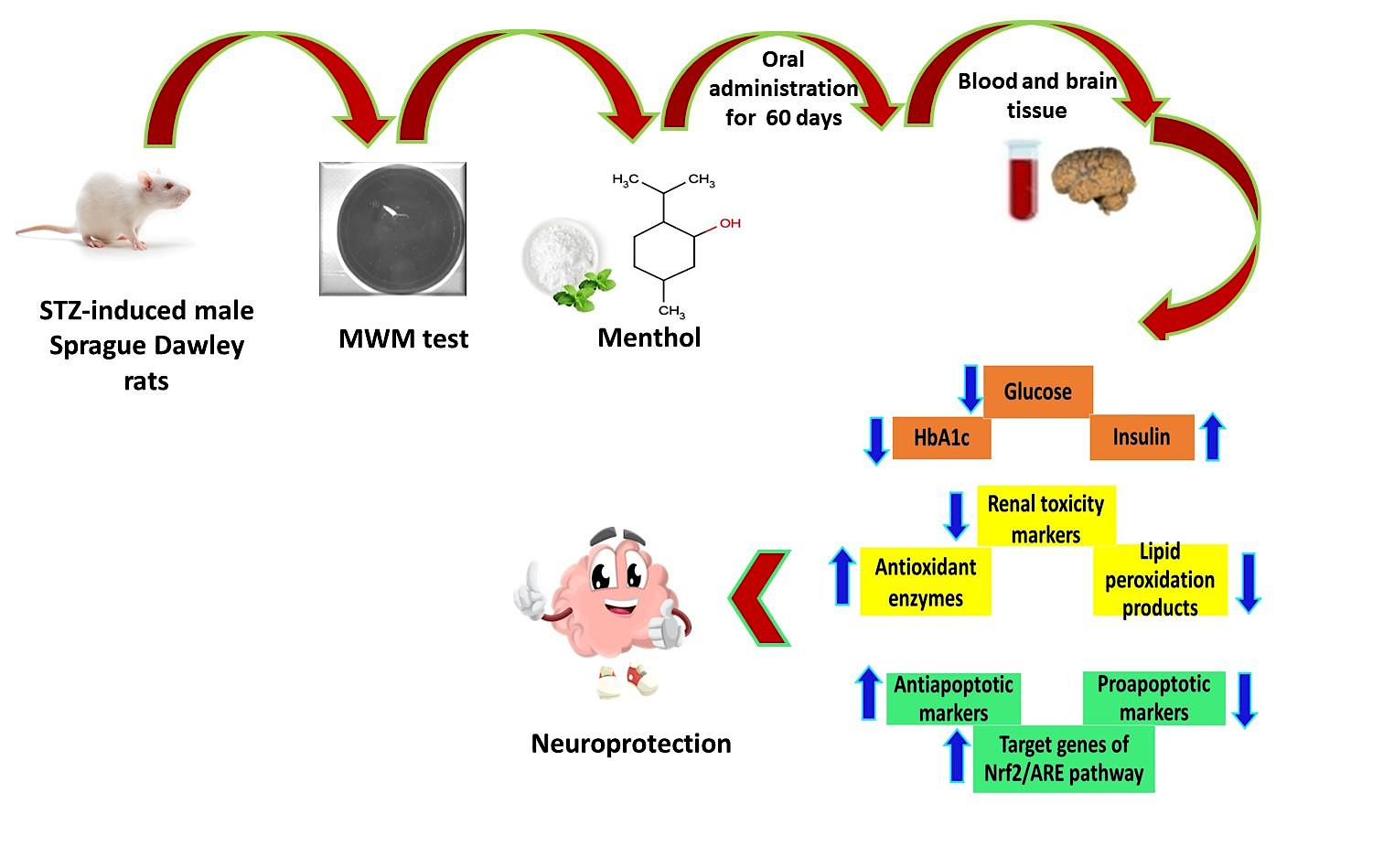Menthol confers neuroprotection through Nrf2/ARE pathway in diabetic encephalopathy
##doi.readerDisplayName##:
https://doi.org/10.31989/bchd.v6i6.1113摘要
Background: Chronic, long-standing hyperglycemia in diabetes results in diabetic encephalopathy (DE). It is hallmarked by cognitive dysfunction accelerated by hyperglycemia-induced oxidative stress.
Objective: This study explored the neuroprotective potency of menthol in experimental diabetes.
Methodology: Streptozotocin at a dose of 40 mg/kg body weight was injected into eighteen male Sprague- Dawley rats intraperitoneally to induce diabetes. The animals were kept without treatment for a period of 30 days for the development of DE. The cognitive deficit was confirmed by the Morris water maze test. Menthol (50 mg/kg body weight) was administered orally for 60 days. The behavioral test was conducted after 60 days of treatment. Results obtained were compared to diabetic rats fed with metformin (100 mg/kg body weight). Animals were then sacrificed to get blood and brain tissue for various biochemical examinations.
Results:Treatment with menthol improved cognitive performance in diabetic rats. In addition, menthol significantly decreased fasting blood glucose, HbA1c, renal toxicity markers, and lipid peroxidation products. Menthol enhances the levels of plasma insulin and antioxidant enzymes. It also upregulated the mRNA expression of Bcl-2, Nrf2, Glo-1, and γ-GCS while diminishing the expression of Bax, cytochrome c, and caspase-3.
Conclusion:Menthol promotes neuroprotection by abating cognitive deficits, attenuating hyperglycemia, regulating oxidative stress, and curtailing apoptosis through Nrf2/ARE signaling.

Keywords: Diabetic encephalopathy, Menthol, apoptosis, Nrf2/ARE pathway
##submission.downloads##
已出版
期次
栏目
##submission.license##
Any manuscripts or substantial parts of it, submitted to the journal must not be under consideration by or previously published in any other journal or citable form. Authors are required to ensure that no material submitted as part of a manuscript infringes existing copyrights or the rights of a third party. In submitting one's article in any form, the author has assigned the FFC publishing rights and has agreed to an automatic transfer of the copyright to the publisher. This is so that the FFC may create print option journals, for example, at the FFC’s discretion. If the author wishes to distribute their works by means outside of the FFC, for example within their community, they will have to place a request.
Correspondence concerning articles published in Functional Foods in Health and Disease is encouraged. While derivative works (adaptations, extensions on the current work, etc.) are allowed, distribution of the modified material is not allowed without permission from the FFC.